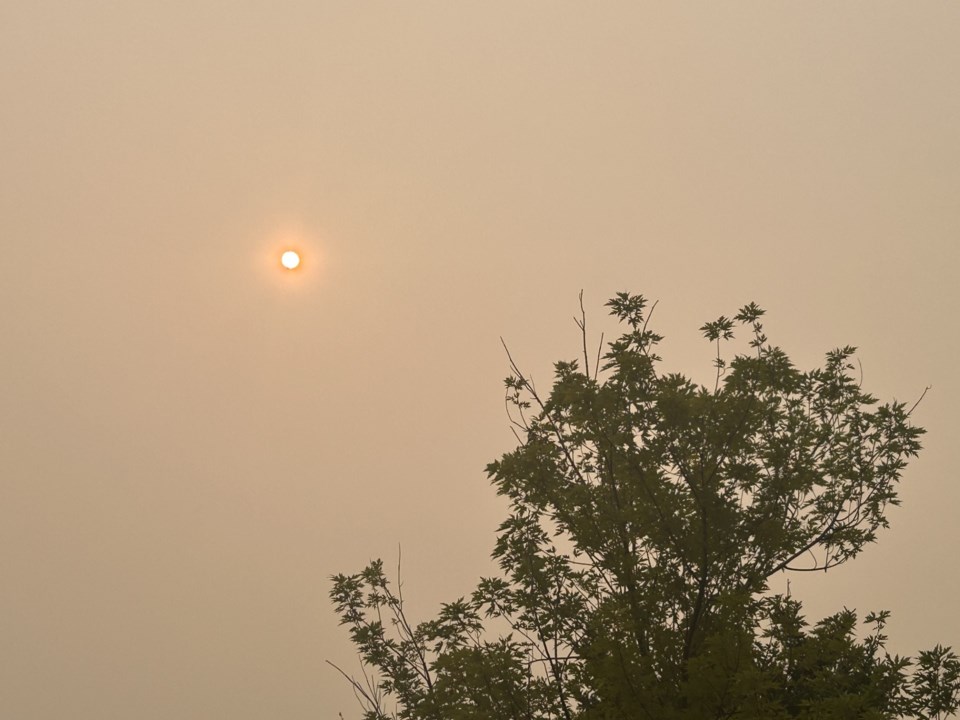Prince George continues to battle with poor air quality as the wildfire smoke continues to impact the region.
The city currently has an Air Quality Heath Index (AQHI) rating of 10+ which is the “very high risk” category.
The AQHI is presented on a scale of 1 to 10+ and a value of 10+ is typically due to very high levels of fine particulate matter (PM2.5) from wildfire smoke.
When the AQHI reaches 10+, air pollution and health risks may continue to increase but the AQHI will not increase any further. This is the highest health risk category on the AQHI scale.
Environment Canada says that when the air is polluted enough to cause an AQHI of 10+, everyone’s health is at risk and it is important to take precautions to protect your health and follow the adivice of local health officials.
This means that everyone should reduce activities outdoors but especially those who are at-risk which includes seniors, young children, pregnant people, and those with heart and lung conditions.
What are the symptoms of wildfire smoke exposure?
Milder and more common symptoms of smoke exposure include:
- headaches
- a mild cough
- production of phlegm
- sore and watery eyes
- nose, throat and sinus irritation
- You can typically manage these symptoms without medical intervention.
More serious but less common symptoms of smoke exposure include:
- dizziness
- chest pains
- severe cough
- shortness of breath
- wheezing (including asthma attacks)
- heart palpitations (irregular heart beat)
If you have any of these symptoms, talk to a health care provider or seek urgent medical attention.
Less commonly, exposure to wildfire smoke can lead to:
- stroke
- heart attack
- premature death
How to keep wildfire smoke out of your home:
The Government of Canada suggests preventing wildfire smoke from entering your home by properly sealing windows and doors, and keeping them closed when the temperature is comfortable; installing the best quality air filter that your ventilation system can handle based on manufacturers’ recommendations; and ensuring you have at least one functioning carbon monoxide alarm in your home.
It is also recommended to use a certified portable air purifier as that can filter particles from wildfire smoke.
Northern Health and the BC Centre for Disease Control Wildfire Smoke have further information on how wildfire smoke can impact health.


